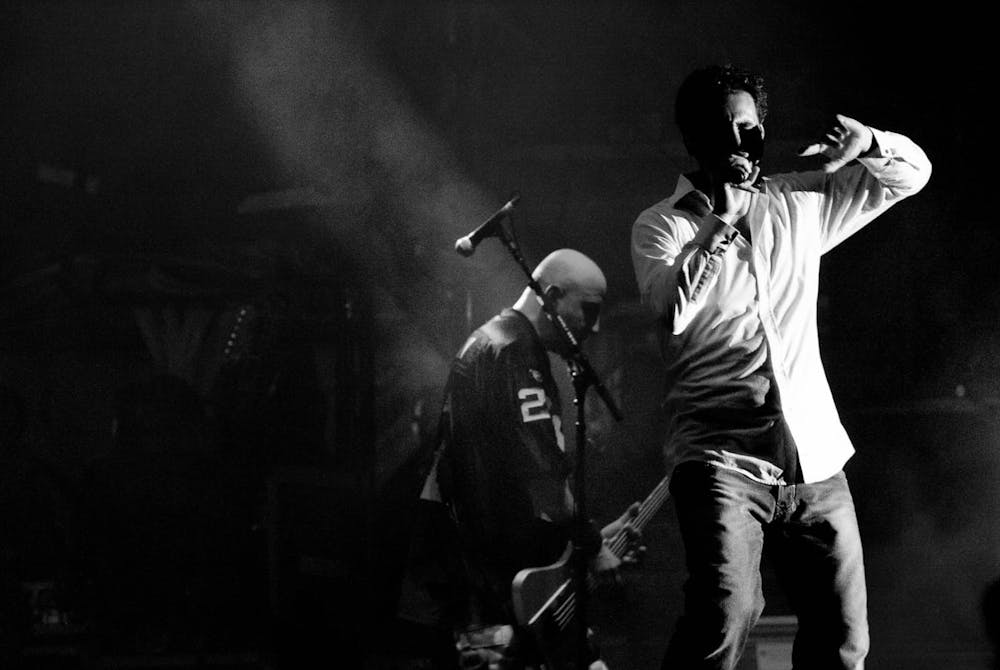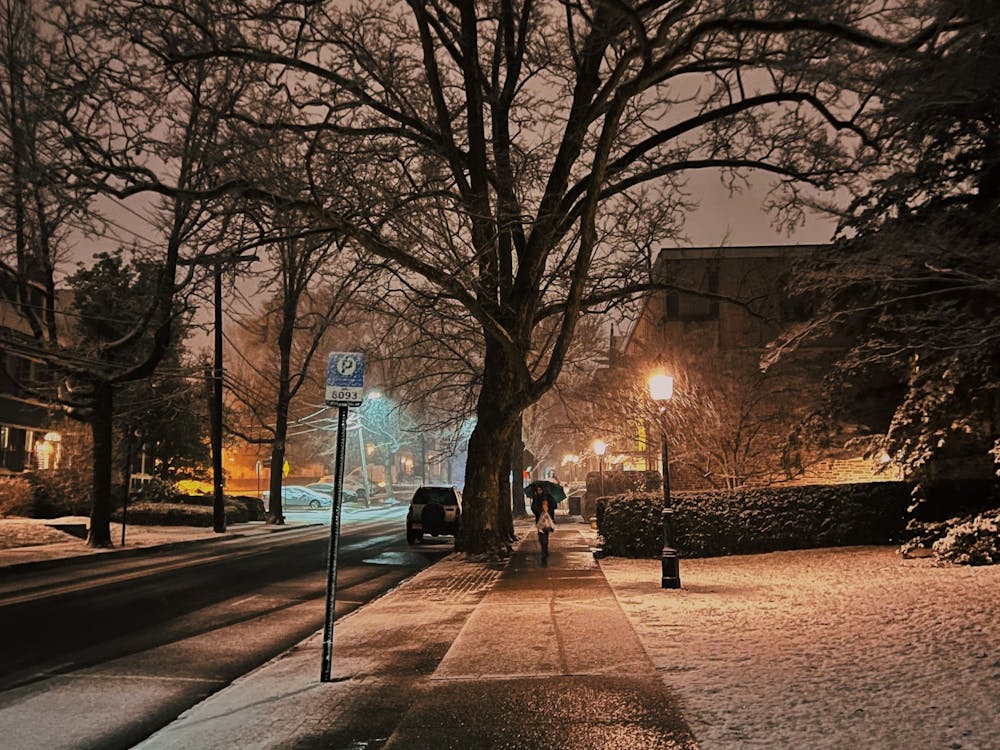Between my writing seminar classes, research papers, a pandemic, and watching the Artsakh War unfold before my eyes — all within the confines of my bedroom — I can definitively say it has been a draining semester. I remember sitting in my car after finals, a paralyzed and hollow husk, simply wanting to escape the entropy of my surroundings and listen to the coaxing verses of “Lost in Hollywood” by System of A Down (SoaD).
Drifting through North Hollywood traffic, I remember hearing Serj Tankian and Daron Malakian’s moody cadences brood about malicious “maggots smoking fags out there on Hollywood Boulevard,” my dreary surroundings blurred into the soundscape of the song’s gritty reality. Suddenly, Hollywood’s porcelain complexion was corrupted by the sight of endless neon ‘Bail Bond’ signs, cigarette smoke, and forgotten concrete stars.
It was a ruthless kind of reality, but one that seemed to mirror the comforting ‘sonder’ that comes with the experience of listening to SoaD’s sulking, B-major melodies while looking out a passenger seat window.
Officially formed in 1994, System of a Down is an Armenian-American heavy metal band founded in Yerevan’s (unofficial) twin-city capital of Glendale, Calif. It consists of four trailblazing musicians — lead vocalist Serj Tankian, guitarist/vocalist Daron Malakian, bassist Shavo Odadjian, and drummer John Dolmayan — who have collectively used their ‘absurdist’ music to pierce political boundaries and create a dialogue surrounding social justice and human rights.
What started as an underground passion project playing at Cafe Club Fais Do-Do in LA subsequently led to an official signing with Columbia Records (1997) and winning a Grammy for Best Hard Rock performance (2006).
Throughout their career, SoaD has sold more than 40 million records worldwide and become the first heavy metal band to hit a billion views on YouTube (2020). Above all other accomplishments, however, System of A Down has bolstered a distinct Armenian musical heritage that has seeped into the ears of billions of foreign (օտար) fans worldwide.
Taking inspiration from Slayer, Static-X, Umm Kulthum, and Armenian Apostolic Sharagans (religious chants that have been reinterpreted in their song “Arto”), SoaD’s songs are bubbling with raucous rage, societal frustration, and cultural nostalgia. If you’re completely unfamiliar with their work, I suggest starting with the song “Bubbles” — seems pretty harmless, right? Cherished readers, you are in for a surprise.
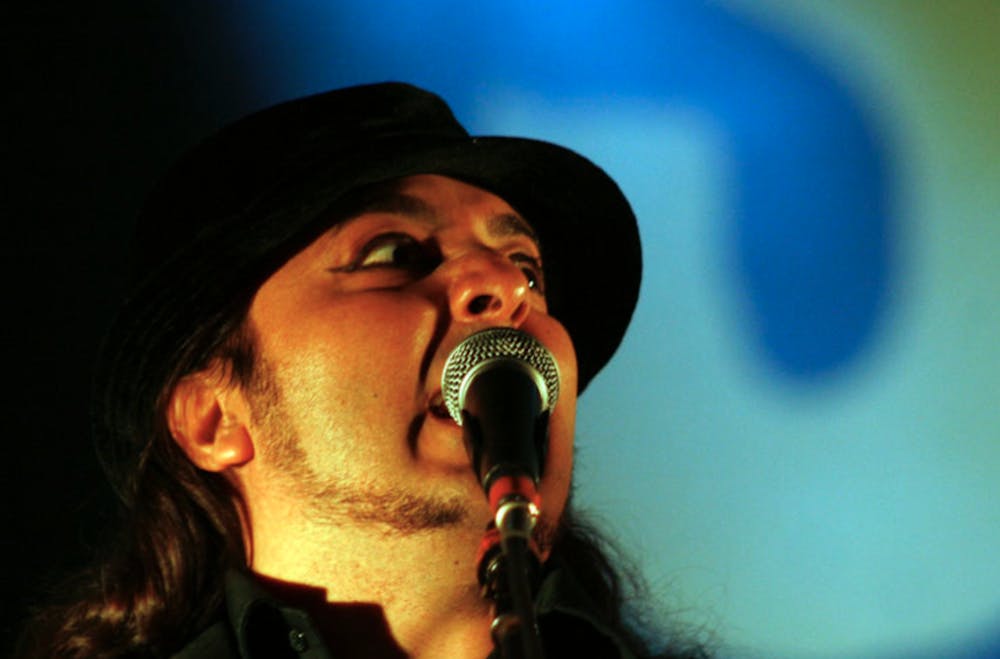
Daron Malakian in a 2011 performance. ·S / Creative Commons

Their albums encompass, at many passes, the yearnings, frustrations, and screams of a discontented diaspora of Armenians, who like me, live in limbo reconciling a solemn ethnic heritage with the novelties of a foreign upbringing. I know what some of you may be thinking: “Wow, System of a Down doesn’t seem conventionally palatable whatsoever!” And yeah, it probably isn’t.
What’s more, much like the poodle in “The Secret Life of Pets” — head banging to the chorus of SoaD’s “Bounce” — I’m the last person on Earth that you’d expect to listen to the dadaist noises of this heavy metal sound experiment. After all, songs like “This Cocaine Makes Me Feel Like I’m On This Song” and “Violent Pornography” from their album Mesmerize aren’t something that my family would expect me to listen to.

Shavo Odadjian on bass guitar at the Sydney Soundwave 2012.
Laubarnes / Creative Commons
I was first exposed to SoaD in 2009 through their Chop Suey music video and have been a loyal fan ever since. As a 7-year-old, I was entranced by the video’s musical void of black eyeliner, braided beards, distressed cargo shorts, mosh pits, and seething electric guitars. As a 17-year-old, I was fascinated by Chop Suey’s criticisms of the superficial importance surrounding the legacies we crave to leave behind as humans — legacies that in and of themselves engender a futile and narcissistic model of social values.

Now, as I’m on the cusp of adulthood, SoaD remains a source of comfort and a therapeutic outlet for the frustrations of my Gen-Z world view, where discontent proliferates any and all forms of thought or protest. Especially in the current political climate, SoaD’s music has helped me — among many others — stand in protest against the hypocritical diatribes of international politicians and political organizations delegating the fate of the Armenian peoples.
Putting out music this last month for the first time in 15 years, SoaD has created a six minute musical crash course for listeners to learn about the corrupt geopolitics of the Caucasus, under the governance of tyrannical, egomaniacal autocrats in the region. Their two newest singles — “Genocidal Humanoidz” and “Protect the Land” — released on Nov. 6, 2020 – are a direct cry against the military attacks of Azerbaijan on the Armenian Republic of Artsakh.
Inhabiting a breakaway state of de jure Azerbaijani territory, the Republic of Artsakh controls the lands of the former Nagorno-Karabakh Autonomous Oblast (an autonomous administrative parcel currently inhabited by an Armenian majority) previously brokered to the Azerbaijan Soviet Socialist Republic in the 1920s by the Stalin regime. Though Armenia and Azerbaijan did not resort to war under the oppressive rule of the USSR, the dissolution of the Soviet regime in 1989 reanimated generations of historical enmity, discontent, and denial as to the ‘true heritage’ of these lands.
The culmination of these grievances has created deep distrust between the two nations in the form of hyper vigilance, as Armenia and Azerbaijan are once again in conflict to reconfigure the boundaries of this territory. As of a Nov. 10 ceasefire (brokered through Russia), the war between Azerbaijan and Armenia has temporarily ended, devastatingly for the 150,000 Armenians living in Artsakh.
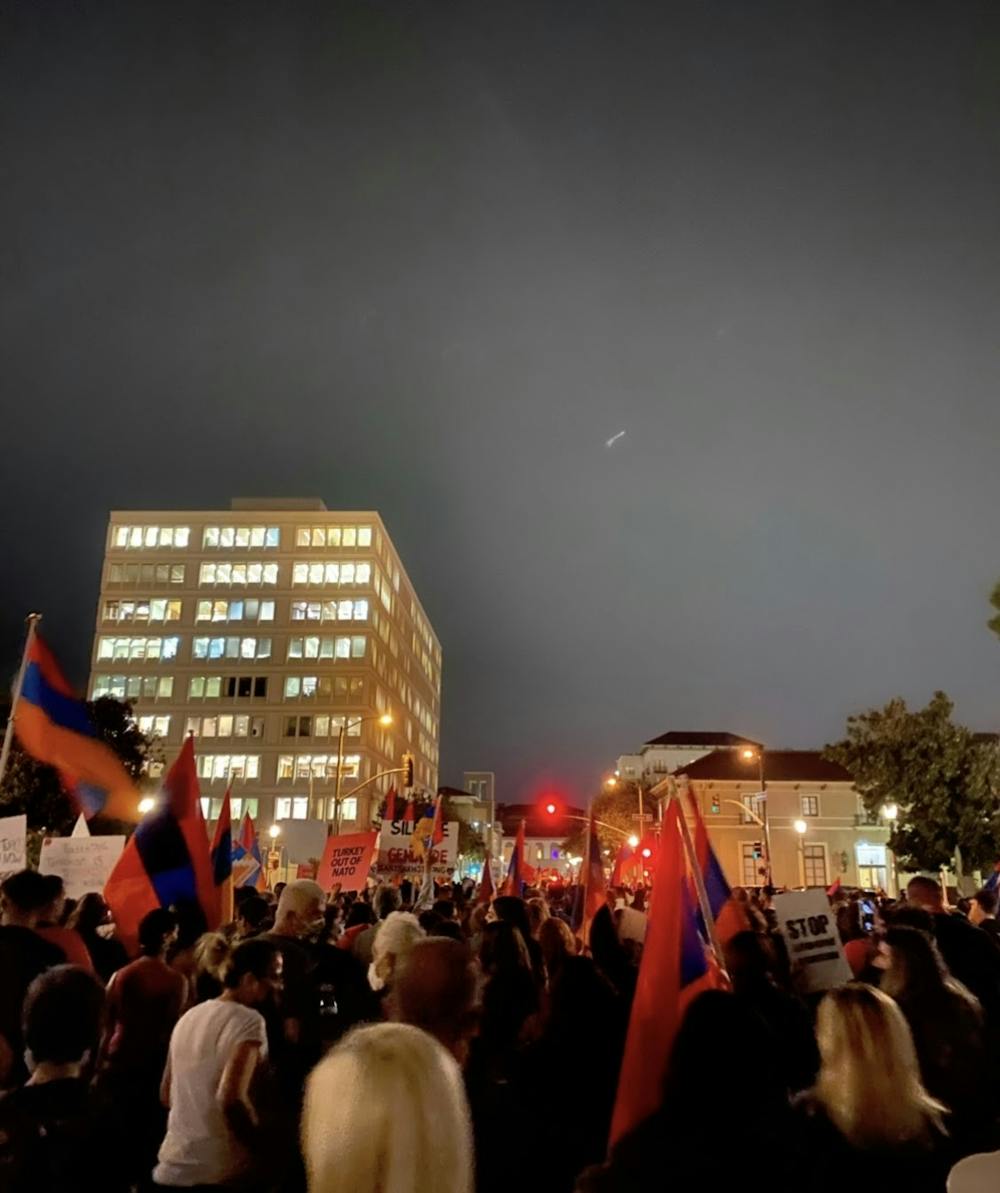
A peaceful protest in Pasadena, CA in front of City Hall for the Artsakh War.
Mikaela Avakian / The Daily Princetonian
Though it remains difficult for me to explain, land — within the context of Armenian culture — does not have an imperialistic function nor one of political prowess; it is merely a cultural remnant. With more Armenians living scattered across the globe than in their native homelands, the physical borders of Armenia and Artsakh — the ancient churches, monasteries, ruins, and khachkars (intricate cross carvings) they hold scattered in between them — are relics of cultural resilience, of a civilization that has withstood generations of foreign invaders and genocide.
The aftermath of the Artsakh War and the loss of Artsakh lands are destructive watermarks that in some ways seek to erase an Armenian presence and historical identity within the ‘black garden’ of Nagorno Karabakh (derived from the Azerbaijani word Qarabağ, which means ‘black garden’) — watermarks, that through the frenetic lens of SoaD’s music reflect generational sorrow in the face of modern corruption.
Discussed in “Genocidal Humanoidz,” the war in the wake of international oblivion (according to SoaD) has reopened raw wounds of cultural trauma stemming from the Armenian Genocide of 1915. SoaD channels this desperation and generational rage through serrated riffs, explosive percussion, and frenzied tremolos that overpower the lyrics of “Genocidal Humanoidz” itself.
“Can you see us,” Tankian probes in the first verse, “the prostitutes who prosecute have failed us from the start.” The statically charged words direct a sense of suppressed anger and feelings of betrayal toward the steady streams of global politicians and governments that have been swayed by oil money, caviar diplomacy, and their own selfish security interests.
Similar thematically to their song P.L.U.C.K. (Politically Lying Unholy Cowardly Killers), which functions as a cry of Armenian Genocide recognition, SoaD maintains that the world has once again turned a blind eye to the ongoing humanitarian crisis in Armenia and Artsakh.
Unfortunately, there’s no eloquent way of talking about war, of remaining impartial or detached especially when such conflict poses an existential threat for the people in question. And in truth, it’s hard not to feel strongly about this issue. It’s hard for me personally not to feel hurt or angry, even as I’m sheltered in my comfortable, suburban surroundings far removed from the destruction.
Artsakh was the birthplace of my mother, grandmother, and eight generations of family before them (according to 23andMe at least). For me, this war wasn’t just about land, it was about having to look my mom in the eyes to tell her that going back home isn’t an option for the foreseeable future. The ancestral Artsakh that I’ve come to recognize through VHS tapes, might have to stay in its pixelated form.
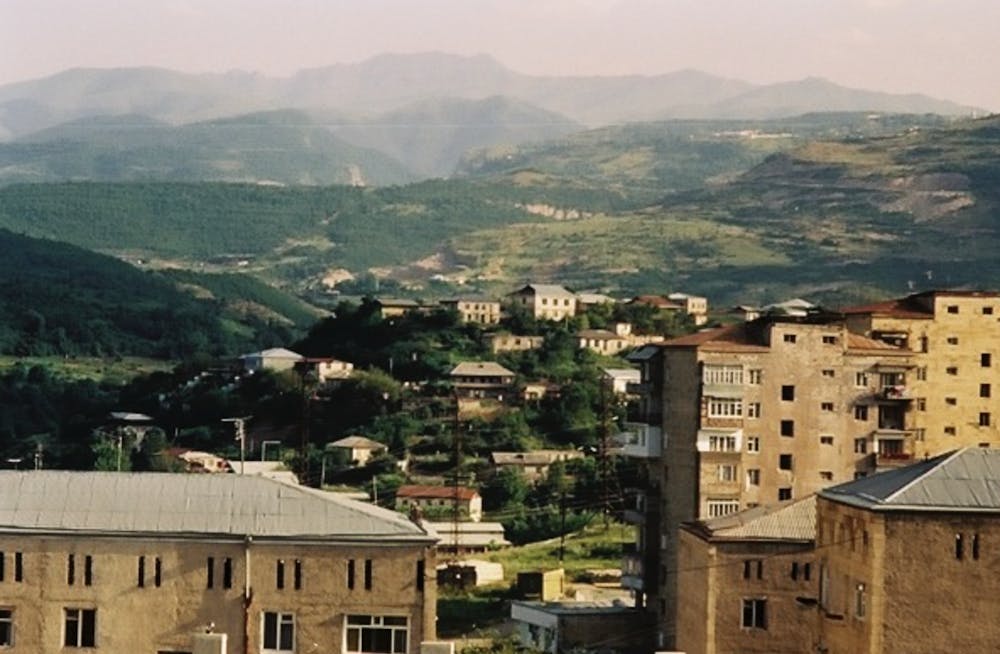
Stepanakert, the capital city of Artsakh.
Kylar Loussikian / Creative Commons
However, even amid the hysteria in “Genocidal Humanoidz,” there is hope to be found in SoaD’s moving rendition of “Protect the Land.” As a refrain that carries throughout the body of the song, an Armenian “history and victory and legacy” will stand forever more.
It is true that in the course of 44 days during the war thousands perished. It is true that perhaps an entire generation of young Armenian boys born in the years 2000 to 2002 is no longer. It is true that Artsakh has conceded an overwhelming majority of its already diminutive territories to Azerbaijan. It is true that the world, once again, has refused to listen. Despite all of this, Artsakh remains, and its inhabitants will continue to protect their nation.
With “Genocidal Humanoidz” and “Protect the Land,” System of A Down has come out of its fifteen year hibernation to remind the world of the Armenian people and the Armenian Republic of Artsakh, nestled beneath the misty Caucasus mountains. Their fighting spirit continues to reverberate in the timeless music of SoaD. They have survived the winter, and diligently wait for spring; for the remnants of their ‘black garden’ to bloom once more.





